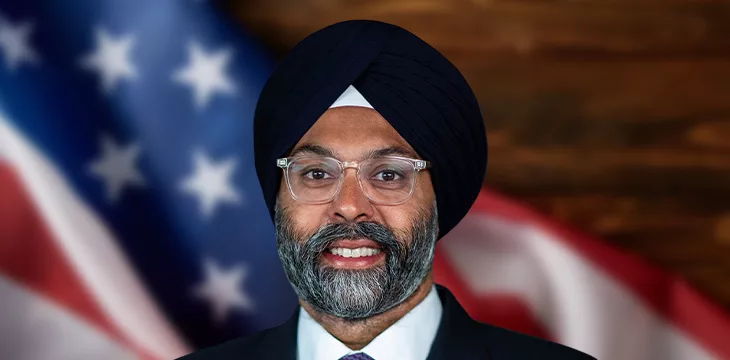|
Getting your Trinity Audio player ready...
|
The ongoing regulatory crackdown on the digital asset industry reached a crescendo in 2023, with the U.S. Securities and Exchange Commission (SEC) bringing potentially fatal enforcement actions against the industry’s biggest players in response to rampant law-breaking and the wanton offer and sale of illegal securities on their platforms.
As important as punishing individual rule-breakers to the SEC and similarly placed regulators, prompt and diligent enforcement is just as much about encouraging future compliance in the market and signaling to potential future participants that the rigorous, decades-old legal regimes (such as U.S. securities laws) not only apply to the digital asset industry but are actively enforced. This, it is hoped, will create a safer, more stable environment in which investors, service providers and asset issuers can operate.
More than a year into the ‘crypto crackdown,’ have the activities of the SEC and others had the desired effect? Gurbir Grewal, the director of the SEC’s enforcement division, says that it has.
Speaking to the Wall Street Journal, Grewal calls the crackdown and the ensuing penalties “a conscious effort over the last two years to make sure the penalties we were seeking were having that deterrent effect”—an effect that the SEC intends to outweigh any benefits that might be gained from non-compliance.
Indeed, the SEC announced that in the year ending September 30, the regulator had brought 784 enforcement actions in the digital asset industry and beyond, which amounted to around $5 billion worth of penalties and other remedies. This is the second-most prolific year in the SEC’s history, second only to 2022 when the crackdown got underway.
And according to Grewal, the crackdown has changed behavior in the market. As an example, a microcosm of this phenomenon can be seen in the SEC clamping down on 40 firms’ obligations to preserve electronic communications, which has resulted in over $1.5 billion worth of fines since 2021. Grewal explained to the WSJ that there was a ‘cultural problem’ among firms where it was common for senior executives to direct subordinates to keep communications off-channel. In turn, this made it difficult to prosecute more substantial investigations.
“These cases started because we weren’t able to effectively investigate misconduct in the market. We went to a party in a case asking for certain documents [from a broker-dealer] and they didn’t have the documents for us. And we went to a counterparty to deal with that broker-dealer, [and] they produced the off-channel communication, indicating to us that there was a problem at the firm that was retaining the records. In fact, it was more than a technical problem. It was a cultural problem that the tone at the top was such that you had senior folks directing subordinates to deliberately move communications off-channel.”
$1.5 billion worth of fines later, Grewal says that this practice has “all changed.”
“It’s a topic at every conference. There are vendors at conferences providing solutions. People are paying attention and the tone at the top and the training has changed. That’s a real improvement as to where we were over two years ago. At least in my time working in the space of enforcement – not just here but in other places – I haven’t seen an initiative like this that has positively impacted the behaviors of so many registrants.”
It’s a good thing, too: the various cases against the likes of Binance and Coinbase are replete with internal communications which have proven highly revealing as to the inner-workings of these companies and the degree of knowledge staff and executives had of law-breaking and intentional regulatory evasion. For instance, the Commodity Futures Trading Commission’s (CFTC) case against Binance revealed that the company had a “corporate practice of communicating about illegal conduct using applications that would be set to automatically destroy evidence of such communications.” What material does end up surviving these sorts of policies—such as Binance’s chief compliance officer putting in writing that “we are operating as a fking unlicensed securities exchange in the USA bro”—is often startling and begs the question of how much worse the material that did get deleted might have been.
Speaking on the digital asset industry specifically, Grewal indicated that he expects the ‘crypto crackdown’ to continue in 2024, highlighting that SEC Chair Gary Gensler has been clear about the ‘tremendous amount of noncompliance’ in the industry and that market participants should expect the regulator to use every tool at its disposal to hold them to account.
Unsurprisingly, one area of continued focus for the SEC and Grewal appears to be digital asset intermediaries—among other things.
“Crypto intermediaries – to the extent they continue to commingle these functions under one roof – remain a priority for the commission, and you could expect to see us continuing to be active in that space. And we’ll keep pace with changing risks. We started years ago focusing on ICOs. We’ve moved on to actions against NFTs and now you see us focused on the crypto asset platforms that are unlawfully commingling these different intermediary functions. A lot of people have lost money as a result of these bankruptcies and there has been a lot of fraud in this space.”
Thus far, it would appear that Grewal has lived up to the implied promise made by the SEC when appointing him to the Enforcement directorship back in 2021. He was hired straight out of his incumbent role as Attorney General for the State of New Jersey after a lengthy career as a local and federal prosecutor, experience which the SEC emphasized when announcing his hiring.
The two full years since Grewal’s appointment have been the two most prolific in SEC history in 2022 and 2023: smart money (and Grewal himself, it appears) says that 2024 has a good chance to be a similarly record-breaking year.
Watch: 2024 will be pivotal for Enterprise Blockchain adoption

 07-05-2025
07-05-2025 





